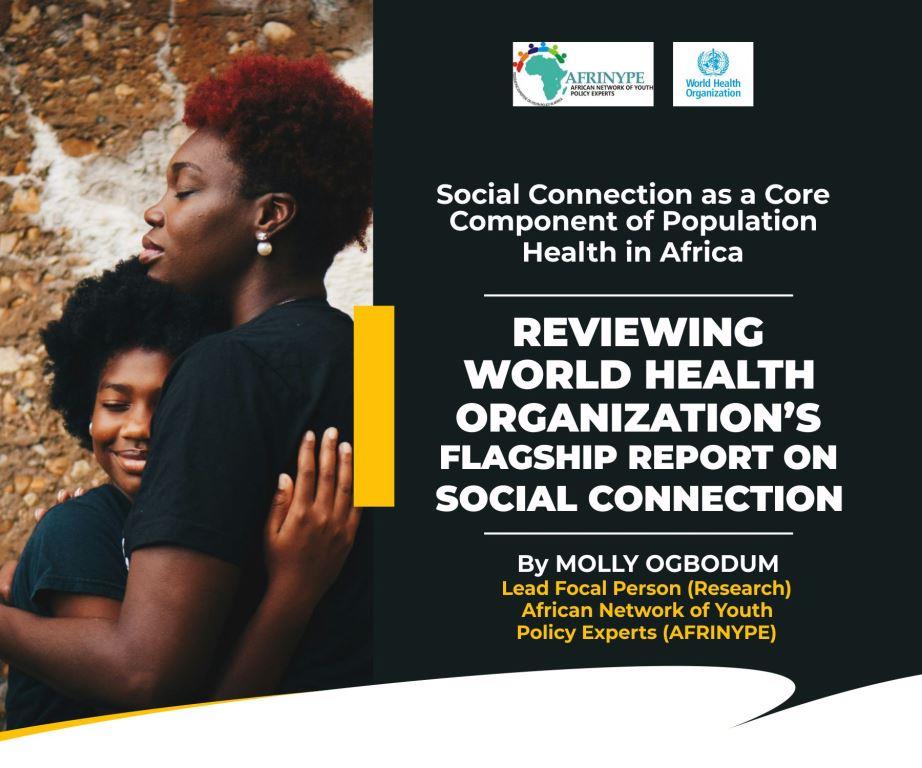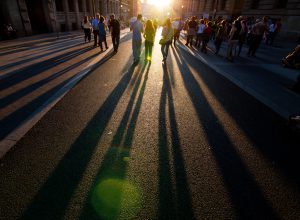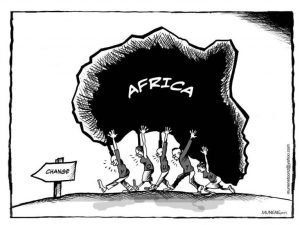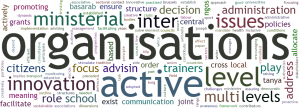In a decisive global health milestone, the World Health Organization (WHO) has launched its first-ever flagship report on social connection, titled “From Loneliness to Social Connection: Charting a Path to Healthier Societies,” following the historic resolution adopted at the 78th World Health Assembly (WHA) in May 2025. This move formally recognizes loneliness and social isolation as pressing global health threats on par with smoking and obesity in terms of health risks.
As a continent with the world’s youngest population, this global recognition is urgent and contextually relevant for Africa because while African societies are often perceived as socially cohesive, this is gradually changing into something more complex. Across the continent, young people are coming of age in a time of unprecedented disruption and transition following rapid urbanization, displacement, digital inequality, economic insecurity, intergenerational divides, and the lingering effects of the COVID-19 pandemic eroding traditional & community support systems. Young people are now specifically experiencing rising social disconnect in ways that may seem unnoticeable. Data from the WHO Commission on Social Connection suggests that 1 in 4 people in low-income countries experience significant loneliness—a rate nearly double that of high-income nations. Yet, due to cultural stigma, limited health infrastructure, and poor mental health literacy, loneliness remains largely invisible in African public discourse and policy frameworks.
Growing evidence shows that loneliness increases the risk of premature death by 26%, and is associated with higher risks of depression, anxiety, suicide, heart disease, stroke, and dementia. Among adolescents and young people in Africa who already face compounded vulnerabilities of poverty, unemployment, trauma and limited access to care, this epidemic of social (dis)connection further override health gains and rather drives health and social inequities. Moreover, loneliness has grown to become both a mental health issue and a development concern as young people who are disengaged from community, education, and opportunity are less likely to contribute meaningfully to nation building. A worrisome standpoint would be how loneliness weakens civic trust, reduces educational outcomes, and limits the pliability of democratic societies.
A Call for African Leadership and Action
AFRINYPE as an Institutional member with the Global Initiative on Loneliness and Connection – a coalition of countries, organizations, and experts working to elevate connection as a global priority – is driven to explore and address underlying intersectionalities that contribute to loneliness and social isolation in Africa. The ways we consider some of this interconnectedness is seen as follows;
Youth unemployment and migration: Young people migrating for access to decent work and economic opportunity often experience social exclusion, discrimination, and disconnection from support systems in urban centers and across borders. This disrupts their sense of identity and belonging, undermine their mental health, and limit their ability to fully participate in education, employment, and civic life.
Gender and caregiving burdens: Across many African contexts, women and girls disproportionately shoulder unpaid and informal caregiving roles for sick relatives, children, or elderly family members, often at the expense of their education, employment, and social participation. In HIV-affected households, this burden intensifies, leading to emotional exhaustion, social withdrawal, and chronic isolation, especially where formal support systems are absent or inadequate.
Digital exclusion: While meaningful digital engagement can expand access to social support and mental health resources, nearly 60% of sub-Saharan Africans remain cut off from virtual spaces where connection, education, and psychosocial care increasingly occur. Similarly, for those online, digital interactions can also be shallow or isolating without intentional efforts to foster genuine community.
Conflict and displacement: Africa hosts more than 36 million forcibly displaced persons representing nearly half of the global total, and many of whom face prolonged social isolation in camps and host communities characterized by exclusion and marginalization.
Climate and environmental shocks: Communities hit by droughts, floods, or food insecurity often experience disrupted social networks, fueling isolation and mental distress.
The WHO’s report has offered a blueprint for action, calling on governments, civil society, and development partners to treat social connection as a health priority and to integrate it into national public health strategies, education systems, urban planning, digital innovation, youth empowerment, and social protection policies. Now more than ever, Africa must build on indigenous models of community support, invest in youth-led innovations for connection, and advocate for mental health systems that see belonging, participation, and dignity as central to well-being. Central to our belief is that no one should feel alone in a crowd, no one should be left behind, not in policy, community, and certainly not in isolation. Just as the WHO defines health to be a state of complete physical, mental, and social well-being, healthy societies are beyond access to medicine but are also built on access to strong social bonds and community care.
Written by: Molly Ogbodum
Lead Focal Person (Research),
African Network of Youth Policy Experts (AFRINYPE)





